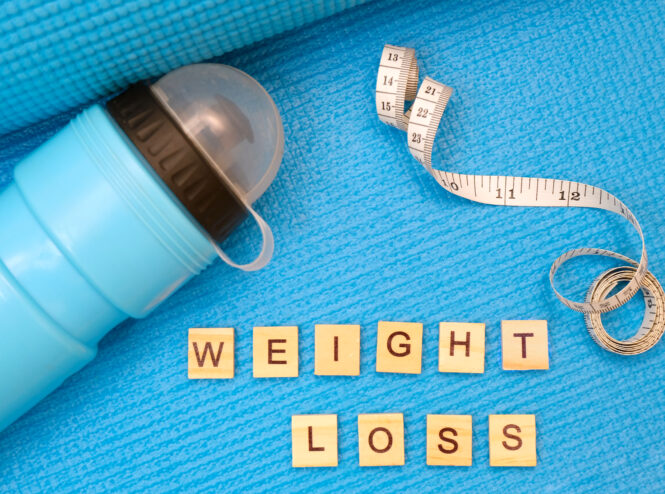If you’re from Zirakpur and feeling stuck with your weight loss journey, let me tell you something I…
Renal Disorder Diet Program
Indyte > Renal Disorder Diet Program
Renal Disorder Diet Program
Personalized nutrition support to protect kidney health, manage symptoms, and support strength and balance—safely and sustainably.
Renal Disorder Diet Program
Personalized nutrition support to protect kidney health, manage symptoms, and support strength and balance—safely and sustainably.
Why Choose INDYTE for Renal Nutrition Support?
Renal disorders require careful, informed nutrition. What you eat directly affects kidney function, energy levels, and overall wellbeing. At INDYTE, our approach supports kidney health while ensuring your body still receives the nourishment it needs.
Personalized renal-friendly diet plan
Nutrition tailored to CKD stage or dialysis needs
Careful electrolyte and fluid management
Easy-to-follow, home-style meal options
Indian food adaptations without guesswork
Diet aligned with nephrologist guidance
How the INDYTE Renal Disorder Diet Program Works
1

Personal Assessment
We review your diagnosis, kidney function reports, medications, lab values, symptoms, appetite, and daily routine.
2

Custom Diet Plan by indyte Nutrition Experts
Your INDYTE dietitian creates a plan focused on kidney protection while maintaining nourishment, taste, and balance.
3

Weekly Follow-ups & Adjustments
As your condition or treatment changes, we refine your plan to support stability, comfort, and long-term health.
Compare & Choose
INDYTE vs Other Weight Loss Options
| Feature / Option | INDYTE Renal Diet Program | DIY Diets | Gym Only | Fad / Crash Diets |
|---|---|---|---|---|
| Personalized to kidney stage & labs | Yes | ✕ No | ✕ No | ✕ No |
| Electrolyte & fluid balance support | Yes | ✕ No | ✕ No | ✕ No |
| Indian, practical meal planning | Yes | ✕ No | ✕ No | ✕ No |
| One-on-one expert guidance | Yes | ✕ No | ✕ No | ✕ No |
| Flexible & sustainable approach | Yes | ✕ No | ✕ No | ✕ No |
| Medical-aligned nutrition | Yes | ✕ No | ✕ No | ✕ No |
Compare & Choose
INDYTE vs Other Weight Loss Options
| Feature / Option | indyte Weight Loss Diet Plan | DIY Diets | Gym Only | Fad / Crash Diets |
|---|---|---|---|---|
| Personalized diet plan | Yes | ✕ No | ✕ No | ✕ One-size restrictions |
| Nutrition expert support | Weekly support | ✕ No | ✕ Only workouts | ✕ No |
| Fast yet sustainable weight loss | Yes | ✕ No | ✕ No | ✕ Temporary |
| No supplements required | Yes | ✕ Maybe | ✕ No | ✕ Often forced |
| Easy meals based on your lifestyle | Yes | ✕ No | ✕ No | ✕ No |
| Ongoing progress tracking | Yes | ✕ No | ✕ No | ✕ No |
| Safe, scientific & realistic | Yes | ✕ No | ✕ No | ✕ No |
| Motivation and Push to achieve health goals | Yes | ✕ No | ✕ No | ✕ No |
Start Your Health Journey
The first step to a healthier you starts here
Talk to our experts now and get personalized guidance tailored to your needs
Don't Believe Us! Hear from our Users
Still don't Us! Below are some more transformations to read
Posted onTrustindex verifies that the original source of the review is Google. I had a very positive experience with Indyte Nutrition and lifestyle clinic Dr Priyanka & Dr Manika Both are very polite & very supportive They provide me valuable guidance They motivating me & keep check on since I have started They are very supportive and kind to me She has given me a diet plan according to my health issues & easy to fallow Dr Manika timely asked me for my overall health Thank you so much Dr Priyanka mam& Dr Menika guiding me Thanks whole team also for your assistancePosted onTrustindex verifies that the original source of the review is Google. I have completed one month with team Indyte and I'm quite happy with the results. I was facing multiple medical issues earlier and in just one month I feel so fit and energetic all credit goes to Dr. Priyanka and Dr. Manika, I'm really Thankful to the team Indyte.Posted onTrustindex verifies that the original source of the review is Google. "I had an amazing experience working with [Dietician Priyanka and Dietitian Manika]!! Within just 2 weeks, I noticed a significant difference—not only in my weight but also in reducing inflammation and shedding extra inches. What truly stood out was the personalized touch; the diet plan was customized perfectly to suit my lifestyle and requirements. It was easy to follow and effective. I’m so grateful for the guidance and support throughout this journey. Highly recommend to anyone looking to transform their health!"Posted onTrustindex verifies that the original source of the review is Google. I am thrilled to share my experience of my weight loss journey with priyanka ma'am and Dt.simran of indyte. I am able to loose 3 kg in one month.They guide me with customised diet plan that not only helped me to loose weight but also improve my overall health. They are so supportive and ensures her clients feel motivated. Especially thanks to Dt.simran ma'am also she always guide me about my diet plan and timely asked me for my health. Priyanka ma'am truly the best dietician in tricity.Thank you priyanka ma'am and Dt.simran ma'am I am grateful to you for guiding me through my weight loss journey.Posted onTrustindex verifies that the original source of the review is Google. With the help of indyte nutrition i have lost 6 kgs and they have been motivating me and checking up on me ever since i started. They are very sweet and kind to me especially Dt Simran along with priyanka Ma’am. She has given me a diet that is so easy to follow that i had followed the diet for a month without a cheat meal. I really like their services and they have played a huge role in my weight loss journey. Thank you so much❤️Posted onTrustindex verifies that the original source of the review is Google. I have been following diet plan from dietitian priyanka mam since 1.5 months to deal with my hormonal imbalance. As a pcod girl, it was quite challenging for us but with consistent efforts and guidance of Dt. Priyanka and her team i am already noticing positive changes. Special thanks to Dt.Simran who always take care of my needs and schedules and plan diet accordingly. She always guided and assisted me with regular follow ups.Posted onTrustindex verifies that the original source of the review is Google. I had a very positive experience with Indyte Nutrition & Lifestyle Clinic. The dietitians are highly experienced and practical, providing valuable guidance. The diet plan is well-structured with a great variety of healthy food options. Their response and support are excellent. I truly believe that with proper adherence to the diet and some exercise, medical conditions can be brought under control. Wishing the team all the best. Thank you very much for your help!"Posted onTrustindex verifies that the original source of the review is Google. "I can’t thank Priyanka Diet Clinic enough for helping me on my weight loss journey! Priyanka is truly the best dietician I’ve ever met. She guided me with a customized plan that not only helped me lose my stubborn weight but also improved my overall health. Her advice and diet suggestions worked wonders for regulating my periods, which was a huge struggle for me. She’s so supportive and always ensures her clients feel motivated and cared for. I’m beyond grateful for her expertise and dedication. If you’re looking for a dietician who delivers real results, Priyanka is the one to trust!"Posted onTrustindex verifies that the original source of the review is Google. Hi m karnal se hu maine dt. gagandeep or unki team se diet plan liya tha diet lene k baad mera weight 8 kg kam hua hai or sath mera health issue bhi dur ho gye h meri skin achi ho gyi or m pahle se active ho gyi hu thank s for dt. Gagandeep or unki team ko and m unko highly recommend karti hu
Latest From Blogs
- November 21, 2024
How To Lose 3 Kg In A Week With Diet Plan And Workout?
How To Lose 3 Kg In A Week With Diet Plan And Workout? – When a person makes…
- Dietitian Priyanka
- Comment: 0
- November 21, 2024
How to Lose 15 Kilos in 2 Months Diet Plan
Are you also trying to lose weight and keen on knowing How to Lose 15 Kilos in 2…
- Dietitian Priyanka
- Comment: 0
- November 21, 2024
1300 Calorie Indian Diet Plan
1300 Calorie Indian Diet Plan – Maintaining a healthy weight is essential for living a healthy life. Being…
- Dietitian Priyanka
- Comment: 0
- September 24, 2024
7 Day Acne Free Diet Plan
Everyone wants clear skin and they do many experiments to make their skin shiner and brighter. Various men…
- Dietitian Priyanka
- Comment: 0









